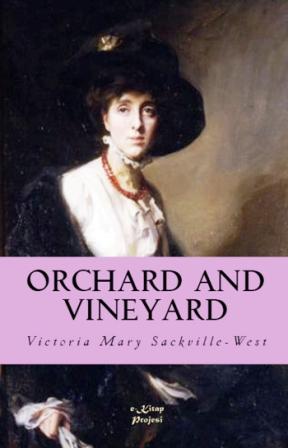
Orchard and Vineyard
ESCAPE
COME, shall we go, my comrade, from this den
Where falsehood reigns and we have dallied long?
Exchange the curious vanities of men
For roads of freedom and for ships of song?
More Search Results...

ESCAPE
COME, shall we go, my comrade, from this den
Where falsehood reigns and we have dallied long?
Exchange the curious vanities of men
For roads of freedom and for ships of song?
We came as strangers, came to learn and look,
To hear their music, drink the wine they gave.
Now let us hence again; the happy brook
Shall quench our thirst, our music be the wave.
Come! they are feasting, let us steal away.
Beyond the doors the night awaits us, sweet.
To-morrow we shall see the break of day,
And goat-herds’ pipes shall lead our roaming feet.
TO EVE IN TEARS
YOU laughed, and all the fountains of the East
Leapt up to Heaven with their diamond rain
To hang in light, and when your laughter ceased
Dropped shivered arrows to the ground again.
You laughed, and from the belfries of the earth
The music rippled like a shaken pool;
And listless banners at the breeze of mirth
Were stirred in harbours suddenly made cool.
You wept, and all the music of the air
—As when a hand is laid upon a bell—
Was stilled, and Dryads of the tossing hair
Crept back abashed within the secret dell.
MARIANA IN THE NORTH
ALL her youth is gone, her beautiful youth outworn,
Daughter of tarn and tor, the moors that were once her home
No longer know her step on the upland tracks forlorn
Where she was wont to roam.
All her hounds are dead, her beautiful hounds are dead,
That paced beside the hoofs of her high and nimble horse,
Or streaked in lean pursuit of the tawny hare that fled
Out of the yellow gorse.
All her lovers have passed, her beautiful lovers have passed,
The young and eager men that fought for her arrogant hand,
And the only voice which endures to mourn for her at the last
Is the voice of the lonely land.
SORROW OF DEPARTURE. For D.
HE sat among the shadows lost,
And heard the careless voice speak on
Of life when he was gone from home,
Of days that he had made his own,
Familiar schemes that he had known,
And dates that he had cherished most
As star-points in the year to come,
And he was suddenly alone,
Thinking (not bitterly,
But with a grave regret) that he
Was in that room a ghost.
He sat among the shades apart,
The careless voice he scarcely heard.
In that arrested hour there stirred
Shy birds of beauty in his heart.
The clouds of March he would not see
Across the sky race royally,
Nor yet the drift of daffodil
He planted with so glad a hand,
Nor yet the loveliness he planned
For summer’s sequence to fulfil,
Nor trace upon the hill
The annual waking of the land,
Nor meditative stand
To watch the turning of the mill.
He would not pause above the Weald
With twilight falling dim,
And mark the chequer-board of field,
The water gleaming like a shield,
The oast-house in the elms concealed,
Nor see, from heaven’s chalice-rim,
The vintaged sunset brim,
Nor yet the high, suspended star
Hanging eternally afar.
These things would be, but not for him.
At summer noon he would not lie
One with his cutter’s rise and dip,
Free with the wind and sea and sky,
And watch the dappled waves go by,
The sea-gulls scream and slip;
White sails, white birds, white clouds, white foam,
White cliffs that curled the love of home
Around him like a whip….
He would not see that summer noon
Fade into dusk from light,
While he on shifting waters bright
Sailed idly on, beneath the moon
Climbing the dome of night.
This was his dream of happy things
That he had loved through many springs,
And never more might know.
But man must pass the shrouded gate
Companioned by his secret fate,
And he must lonely go,
And none can help or understand,
For other men may touch his hand,
But none the soul below.